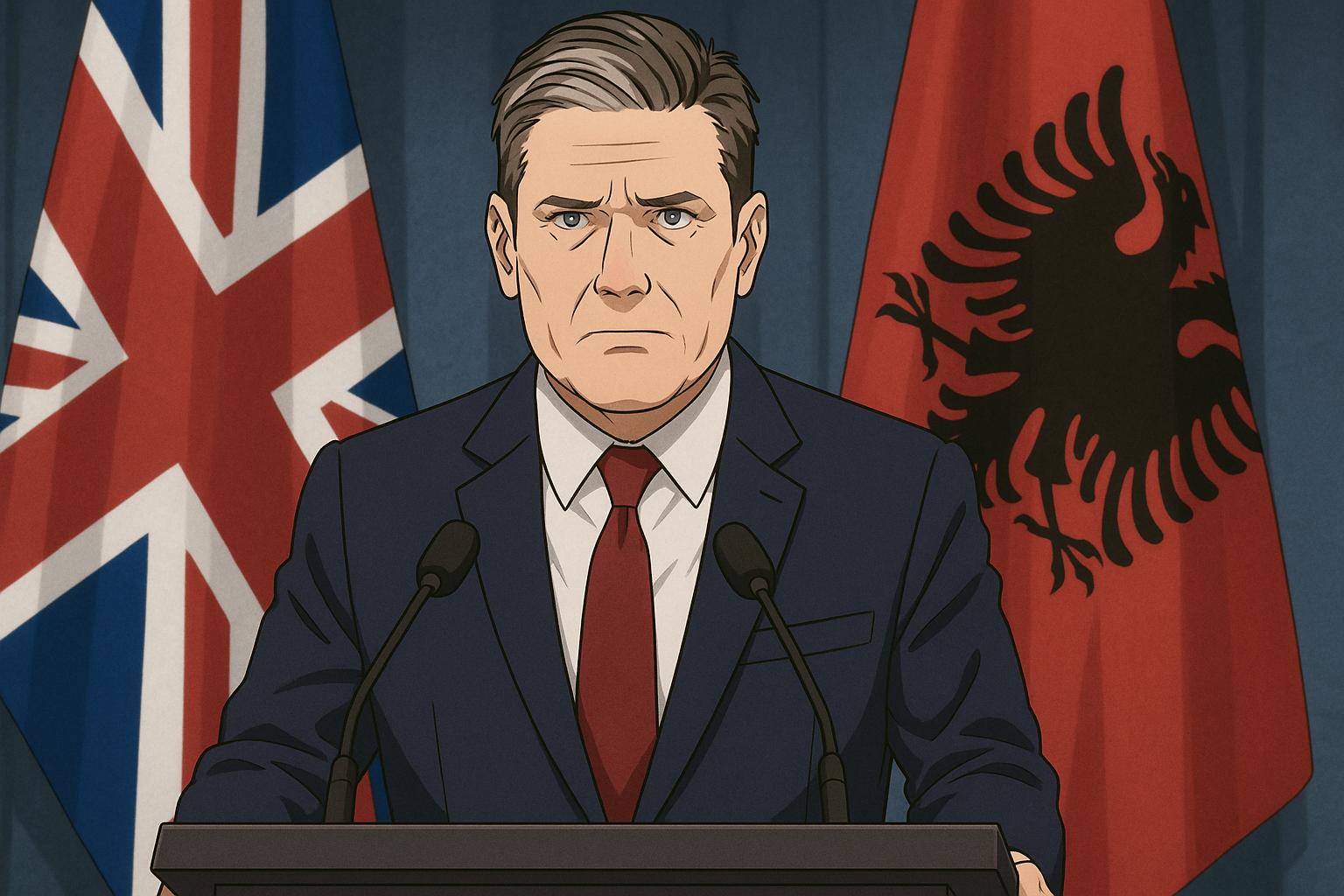The fallout from Albania's shocking refusal to engage in a proposed migrant deal with the UK has thrust Prime Minister Sir Keir Starmer into the spotlight of an intensifying immigration debate. His recent visit to Albania ended with a clear-cut response from Albanian Prime Minister Edi Rama, stating unequivocally that Albania will not accommodate 'returns hubs' for UK asylum seekers. This initiative, designed to detain rejected applicants while they awaited deportation, stands in stark contrast to the much-maligned Rwanda relocation plan that the previous Conservative government had advocated, a move Starmer has hastily discarded.
This diplomatic debacle reflects deeper issues within Starmer's approach to immigration control, which now seems alarmingly ineffective. In an attempt to salvage this situation, the UK government is reportedly looking into discussions with up to nine other countries, including Bosnia, Serbia, and North Macedonia, as alternative hosting sites for these proposed hubs. Such desperation only signals a leadership that is floundering in the face of mounting public pressure to tackle immigration effectively amid an ongoing crisis stemming from rampant small boat crossings.
The implications of this failure extend beyond immigration policy; they also echo through Starmer’s economic strategy. While recent figures showing a 0.7% expansion in the UK economy for the first quarter of 2025 may seem promising, they are undermined by wavering confidence and warnings of an impending slowdown. The touted growth, framed by Starmer as a sign of economic resurgence, sits precariously against rising taxes that threaten to stifle any glimmer of sustainable progress.
Moreover, the International Monetary Fund (IMF) had previously signalled that while the UK economy might recover from the recessions of 2023, growth could falter again due to external pressures, notably the tariff policies enacted by US President Donald Trump. Financial analysts are watching these developments with bated breath, knitting together the threads of optimism and fragility as the government fails to grasp the alarming nature of this global volatility.
Consumer spending in the UK may have experienced a temporary uptick, buoyed by seasonal factors like a late Easter holiday and favorable weather, but it belies a more troubling undercurrent. As the British Retail Consortium notes a rise in retail sales, the reality is that this growth is not merely a sign of resilience but rather a masked response to the larger issue of increasing living costs and the looming spectre of international trade barriers.
As the UK government wrestles with the intertwined challenges of immigration and economic stability, Starmer is rapidly losing the narrative. His administration faces legitimate concerns about its effectiveness in stemming the tide of asylum seeker issues while simultaneously managing a populace that is becoming increasingly aware of its economic plight. With vital areas of immigration policy and economic rejuvenation spiraling out of control, the current political landscape reflects disillusionment and uncertainty that could redefine the UK's future.
Source: Noah Wire Services
